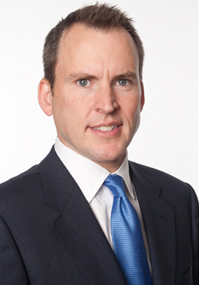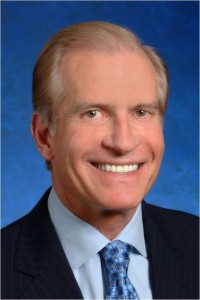 In his role as Senior Managing Director for Evercore Partners in New York, John Honts, BHP ’92, has been involved in numerous merger and acquisition deals over the years. Evercore has carved out a position as the largest independent advisory firm and Honts has advised CEOs on some major deals including Sanofi on its acquisition of Genzyme, Wyeth on its sale to Pfizer, and CVS on its acquisition of Caremark. Honts recently sat down with us to tell us more about his career path and the M&A process.
In his role as Senior Managing Director for Evercore Partners in New York, John Honts, BHP ’92, has been involved in numerous merger and acquisition deals over the years. Evercore has carved out a position as the largest independent advisory firm and Honts has advised CEOs on some major deals including Sanofi on its acquisition of Genzyme, Wyeth on its sale to Pfizer, and CVS on its acquisition of Caremark. Honts recently sat down with us to tell us more about his career path and the M&A process.
Tell me a bit about your career path.
After I graduated from UT, I went to work for Merrill Lynch as an investment banking analyst. I spent three years with Merrill, two in New York and one in London. I then went on to Stanford business school and graduated from there in 1997. I took a job with Evercore in ’97 and have been with the firm ever since. Evercore was founded in 1995, so when I joined, it was a small boutique with about 10 professionals and 20 employees in total. Now there are around 850 employees and the company has expanded both geographically and in scope. Mergers and acquisitions (M&A) advisory work is the biggest thing we do. I have been a generalist in M&A for most of my career and have been specializing in M&A for health care clients since 2007.
Why did you choose to work for Evercore?
I wanted to do something more strategic and thoughtful. I knew I was interested in M&A. Evercore has always followed a classic style of banking, by focusing on a handful of clients and giving them the best advice possible. We compete against the global full service banking firms, and to be competitive, we have to consistently provide our clients with creative, high quality ideas, as well as superior execution.
What factors come into play when you are advising companies on mergers and acquisitions?
At the heart of M&A is strategy, and we work closely with CEOs to determine how inorganic moves such as acquisitions or divestitures will complement the overall strategic game plan for the company. The first step when working with a company is typically to evaluate a range of possible options and determine the most attractive ones. Then comes the art of what is possible. For instance, if there is a company you want to buy, figuring out if it is acquirable by looking at the motivations for all parties involved, and if a transaction is feasible from a financial perspective. Then, we get into tactics, such as how do you make an approach to a target, and what do you do next if the target is not receptive to the approach. This involves exploring alternatives such as making your offer directly to the target’s shareholders by releasing it publicly or moving on to the next possible target.
In identifying the best options, we think about what the transaction would do for the company strategically. For example, we look at how it would affect market share, the complementary fit of products and services, and customer and supplier synergies. When analyzing a transaction from a financial standpoint, we look at its effects on a variety of metrics including growth rates, margins, earnings per share, return on capital, leverage, and credit ratings.
We work in teams of four to five people on a typical project. The team is headed by a senior managing director, which is my role, and includes an analyst, which is what a new BBA graduate would do. The analyst is mainly responsible for the financial modeling and quantitative analysis that enables us to make conclusions.
A transaction normally takes about six months from the time we start working on it to when it is announced. Once it is announced, companies take it from there to close the deal. I am usually working on two to four live projects at the same time and still pitching new ideas to clients to refill the pipeline.
What do you enjoy most about what you are doing with Evercore?
It is a very thoughtful business. We are always trying to come up with new ideas for companies. I like that I am able to work directly with CEOs on their business strategy. I also appreciate the hard-working and talented group of people here. We have several people who went to UT in the senior ranks and a large UT contingent at various levels at Evercore.
What advice do you have for students wanting to go into a similar position to yours?
Doing an internship in something similar to this would be a plus and a strong accounting background would also be helpful. Focus on your analytical and quantitative skills. Also make sure you are comfortable in Excel doing analysis and financial modeling. Coming out of Texas, I had a good set of financial skills. Students should supplement those skills by demonstrating an interest in banking. A good way to do that is to talk to others about what investment banking is about so that you have a good understanding to draw upon in an interview, and have a sense as to whether investment banking is a career you really want to pursue. Also, students should think about whether they would like to work for a boutique advisory firm such as Evercore, or a full service bank, and how the firms are different from a cultural and reputational standpoint.
How did your time in the BHP affect you and your long-term career path?
I liked staying with the same group of people in my classes. There were about 40 students in my BHP graduating class. It was a very talented group. I appreciated having the best professors and smaller classes. Some classes were really eye opening for me.
Do you have any advice for current BHP students?
Try to find something that you are really interested in and focus your job search around that. When I graduated from both UT and from Stanford, I had to do my own work to get the jobs I wanted. Companies weren’t recruiting for those specific positions. Leverage your alumni network and friends and seek out what it is you want. I used the alumni network and made it clear to people that I wanted to go to New York.



